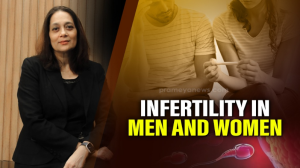Infertility in Men and Women: A Growing Health Concern in India

Infertility is emerging as a major public health concern in India, impacting an estimated 27.5 million couples struggling to conceive. Despite notable progress in reproductive health and fertility care, access to infertility treatment in India remains limited, especially within the public healthcare system. According to the UNFPA 2025 State of World Population Report, 13% of individuals report infertility as a barrier to fulfilling their reproductive intentions.
One of the major concerns highlighted by healthcare experts is the high cost of fertility treatments, which significantly restricts access for middle- and lower-income groups. Although private IVF clinics and assisted reproductive technology (ART) centers offer advanced services, affordability remains a substantial obstacle. Other contributing factors such as financial pressure, housing challenges, and job insecurity also hinder many from achieving their desired family size.
Social stigma around infertility, particularly toward women, further deepens the challenge. Societal pressures, emotional distress, and misconceptions about infertility often place an unfair burden on women. However, experts continue to stress that infertility affects both men and women equally, and must be treated as a shared responsibility. Various factors—ranging from lifestyle and environmental issues to hormonal disorders and medical conditions—can influence fertility.
Dr. Sujata Kar, a distinguished Obstetrician and Gynecologist based in Bhubaneswar, underscores the critical need for public education on infertility awareness and reproductive choices. She states, “Infertility is not just a medical issue but a social challenge. Couples should be empowered with the right information and resources so they can make informed decisions about parenthood without fear of judgment.”
Addressing India’s infertility crisis requires strengthening reproductive rights and agency—ensuring individuals can make free, informed choices about their fertility journey. Experts call for expanding affordable fertility services, offering paid family leave, and eliminating social stigma as vital steps toward sustainable change. As emphasized in the UNFPA report, supporting individual reproductive goals matters far more than concerns over population growth or decline.
To move forward, India must focus on increasing access to fertility care, encouraging open dialogue about reproductive health, and creating a society where everyone has the freedom to build the family they dream of, free from shame, pressure, or financial burden.
